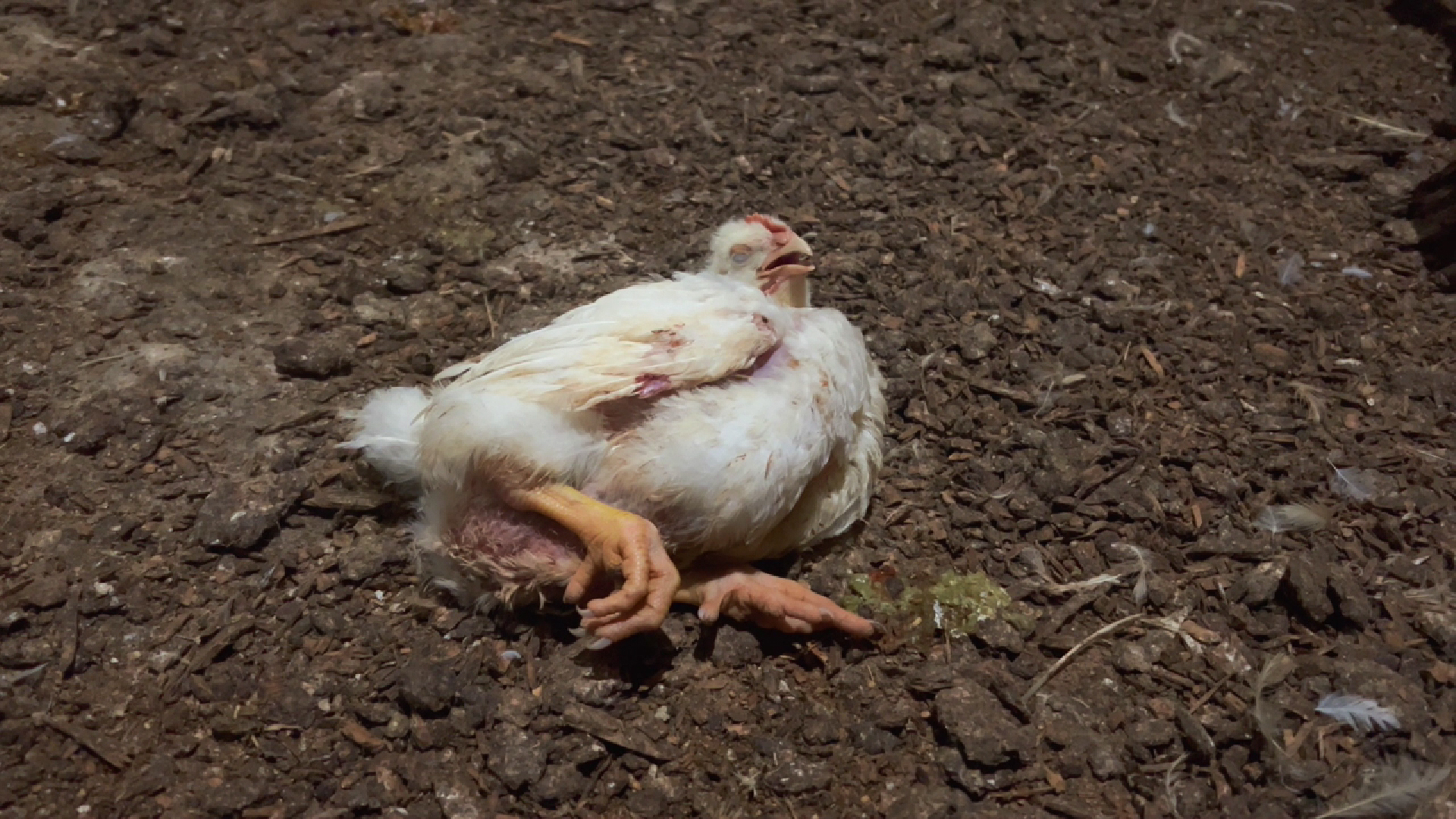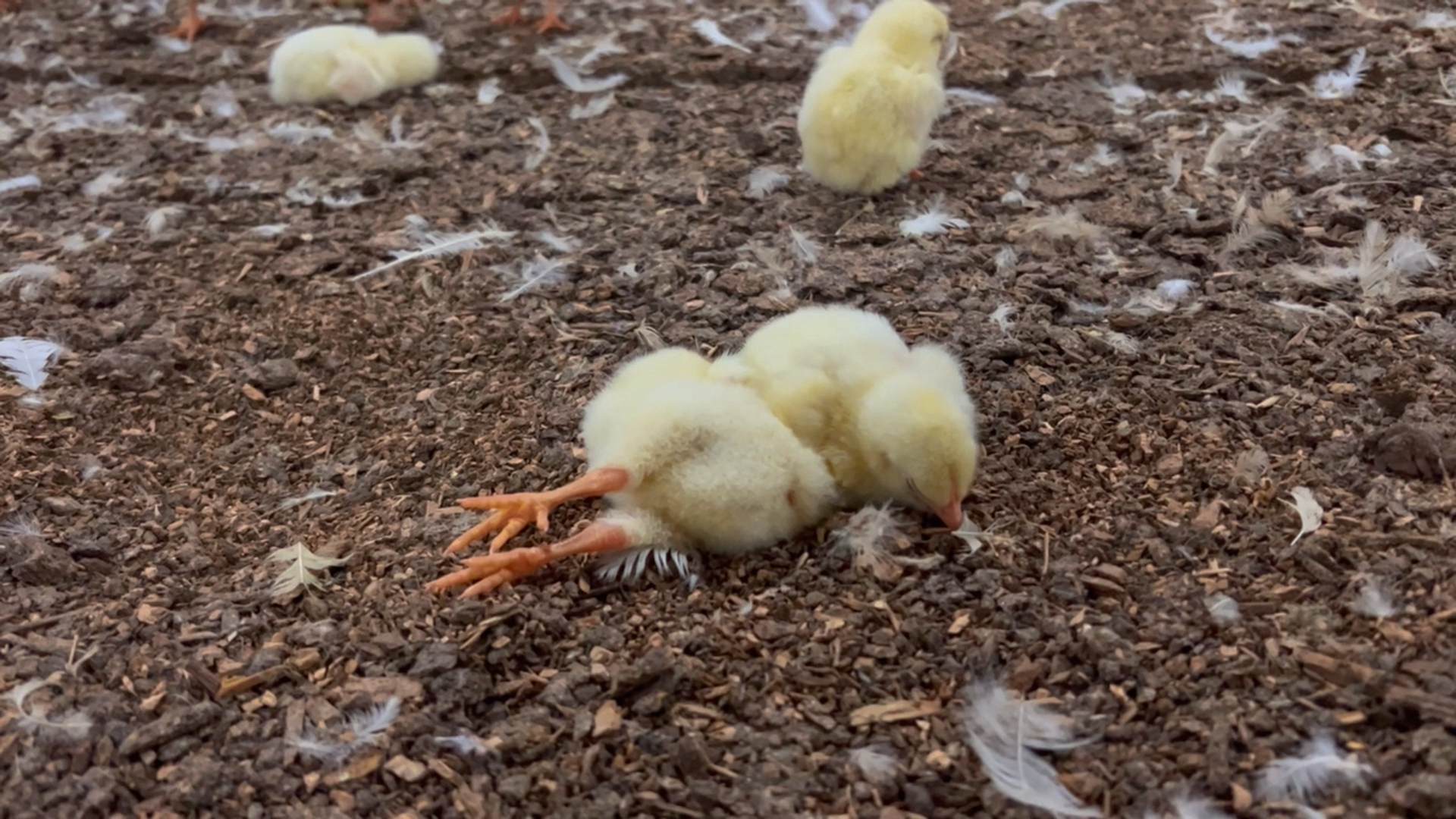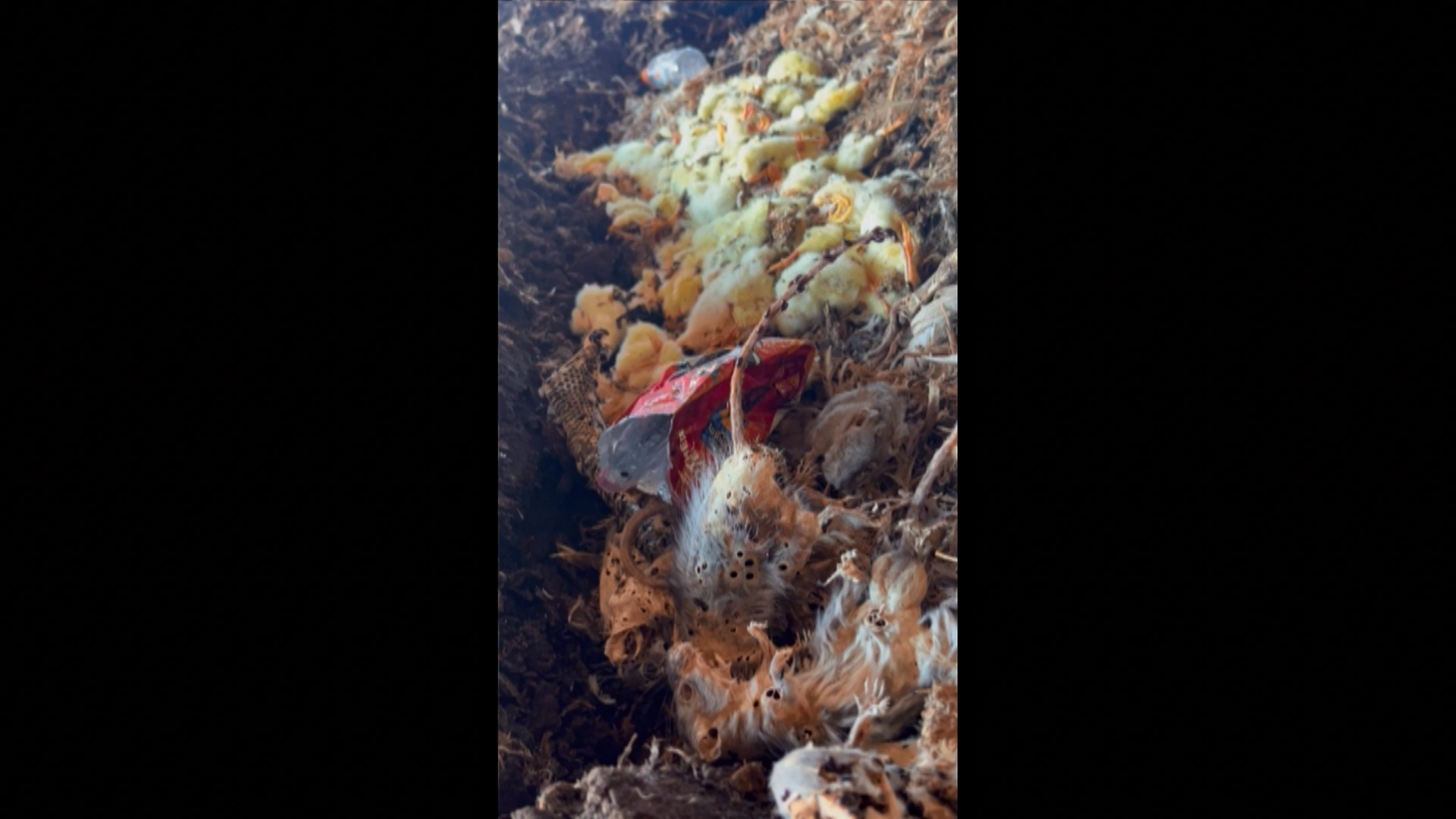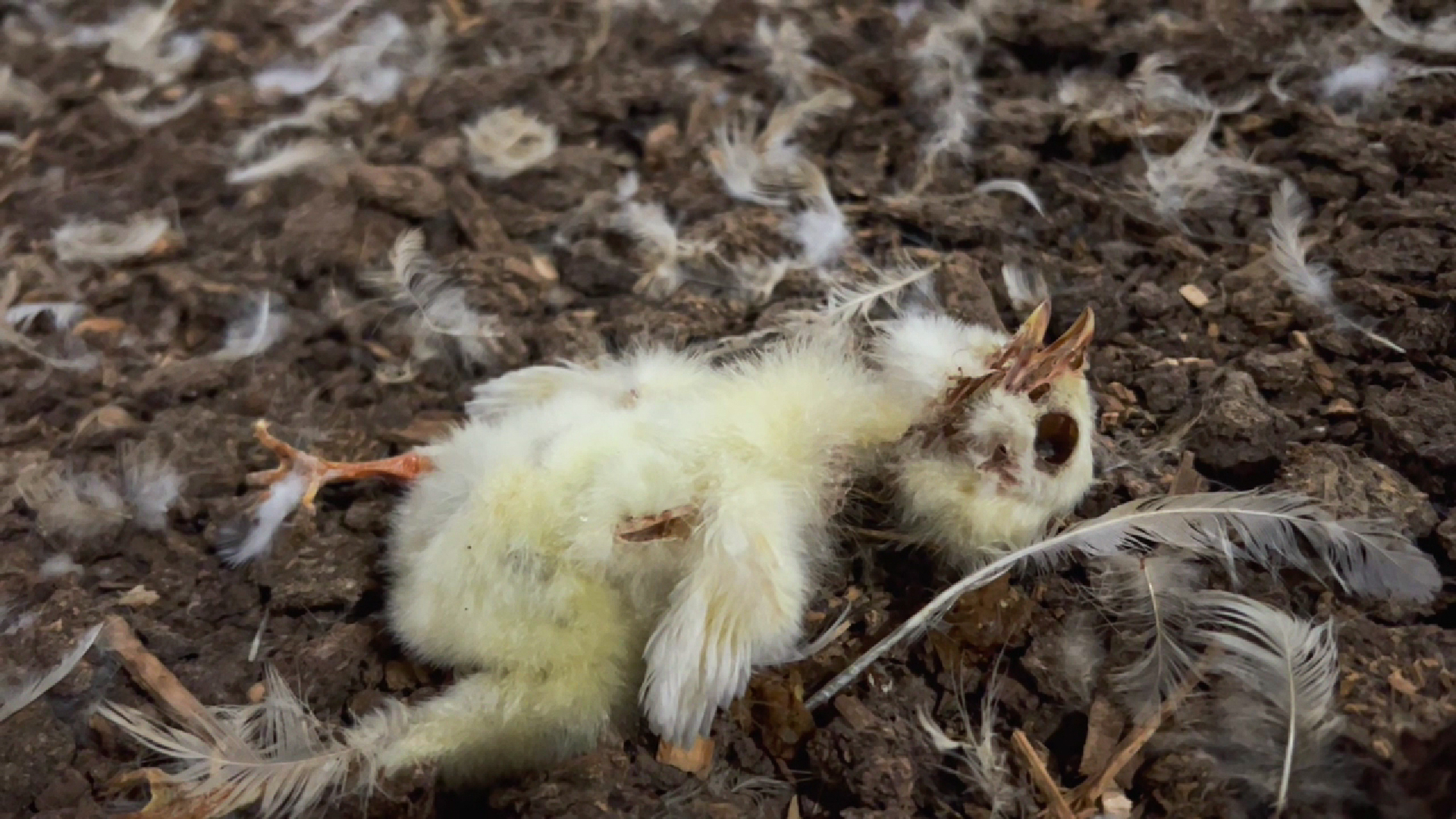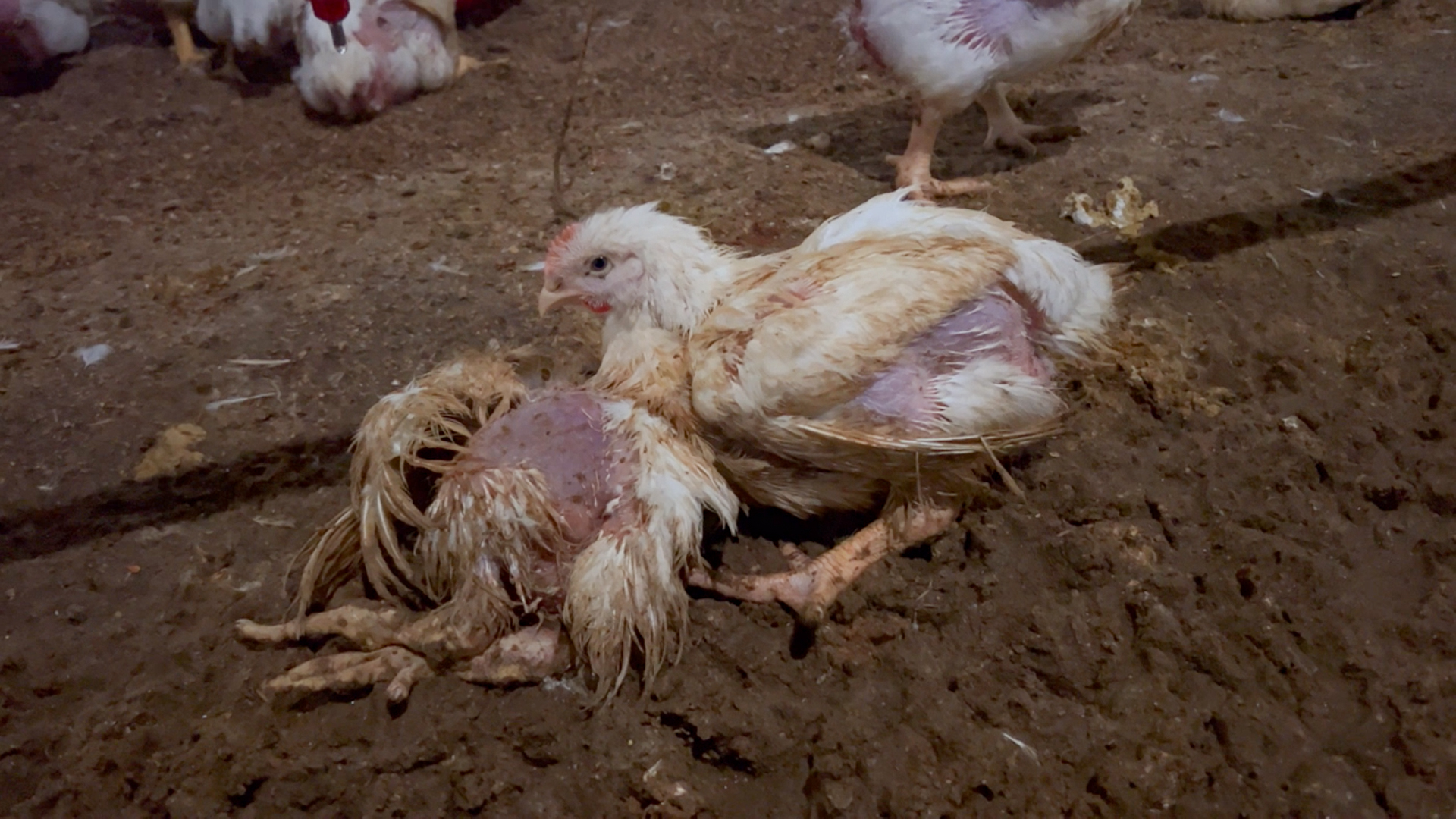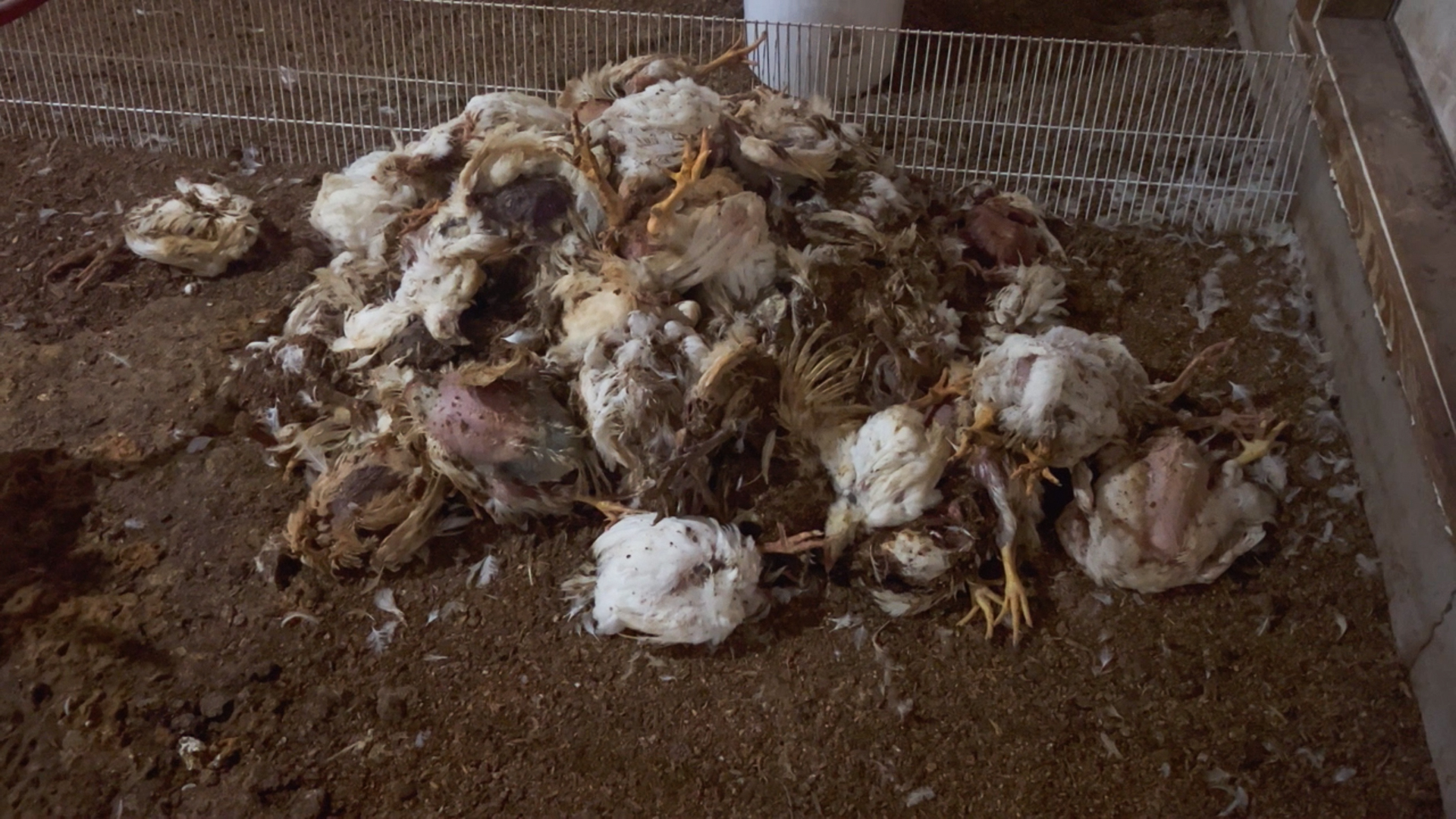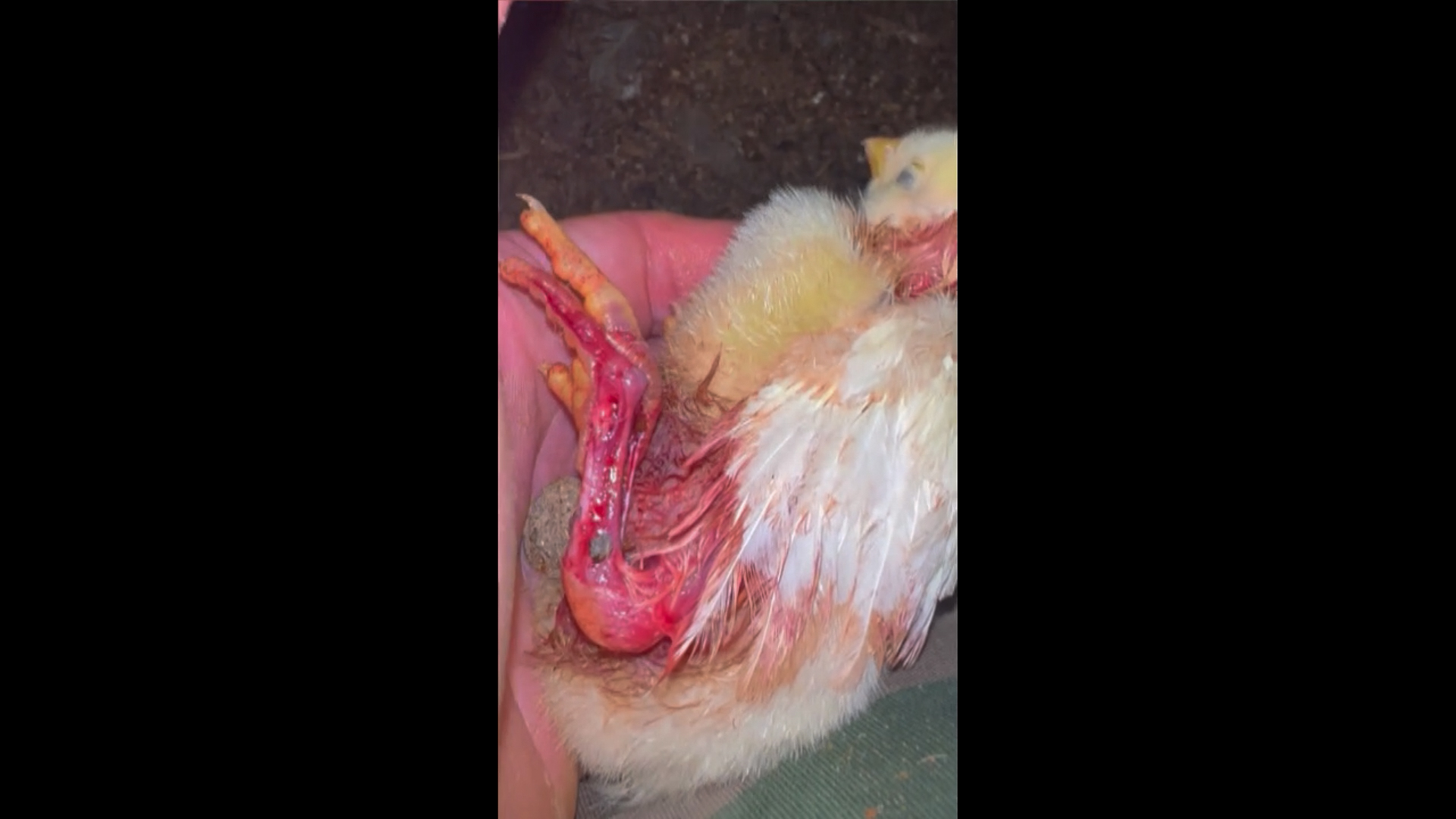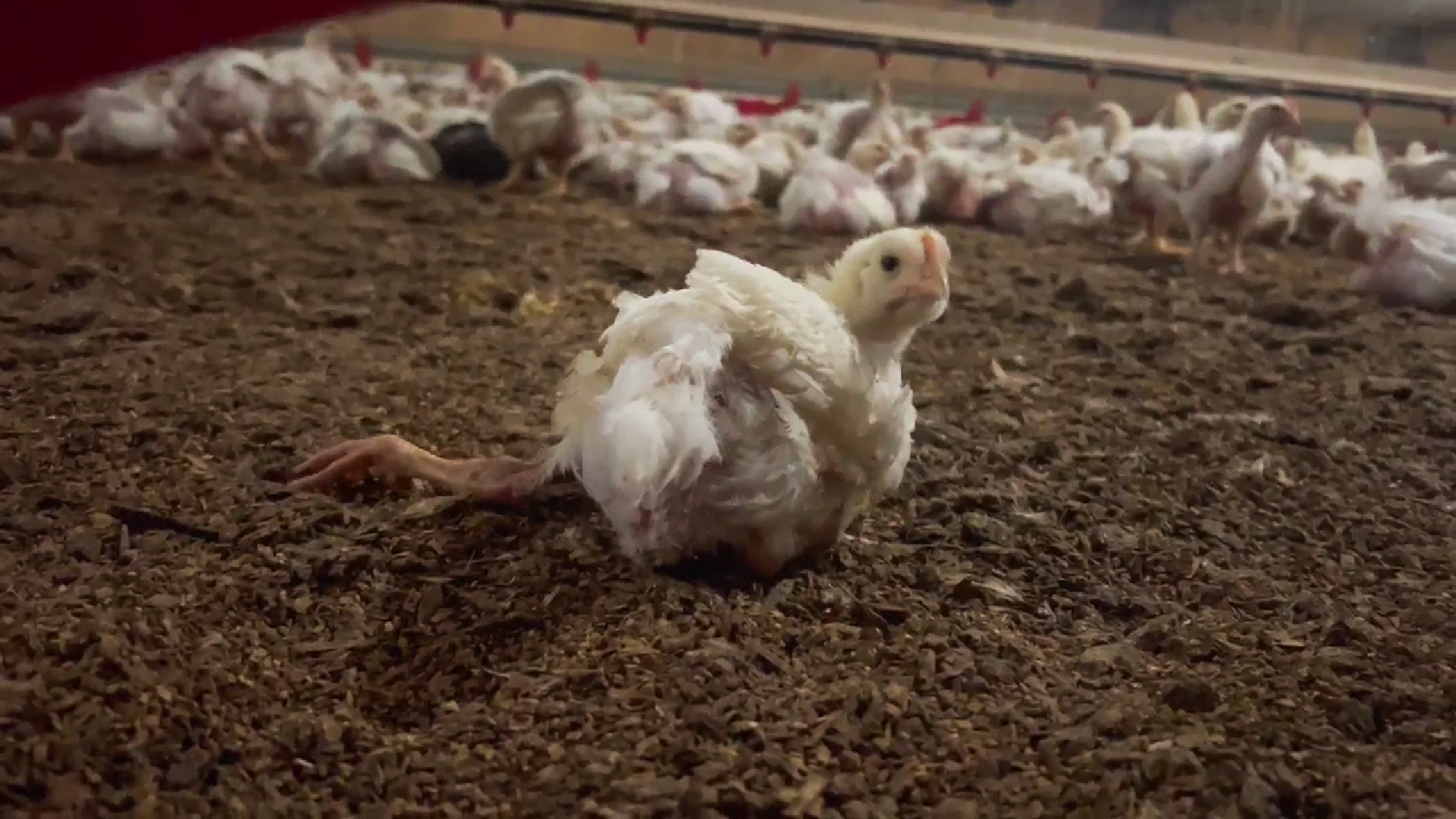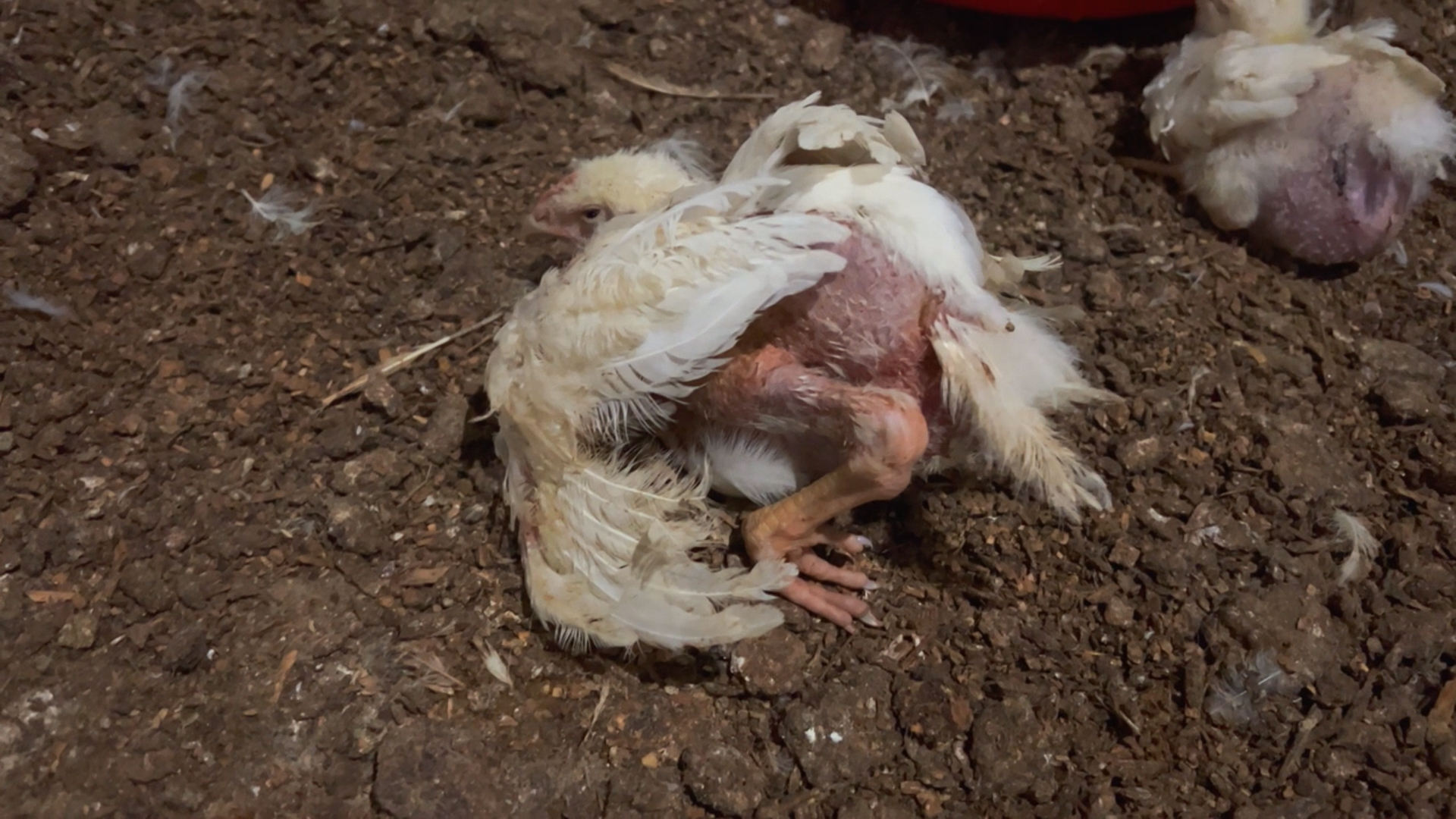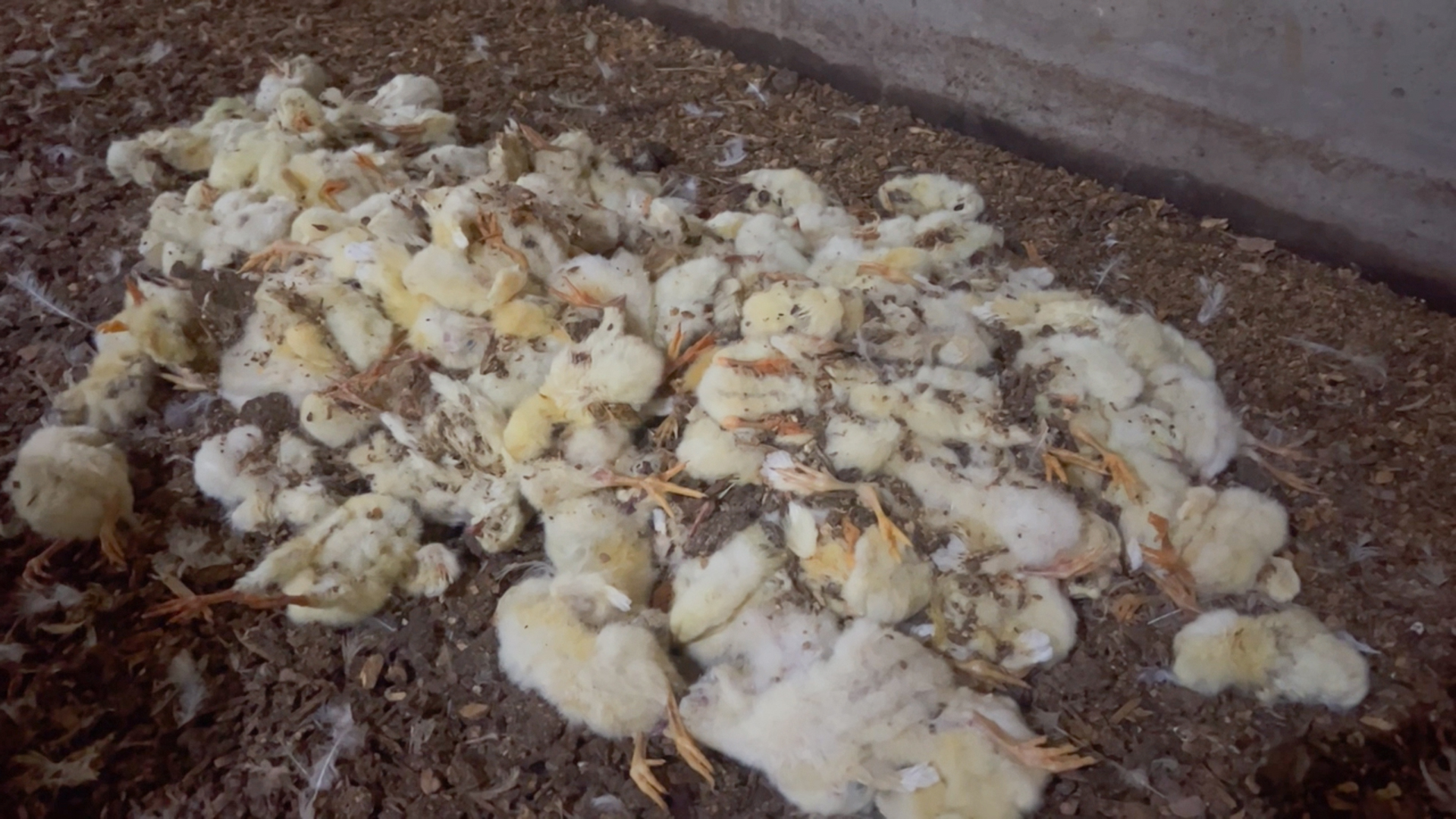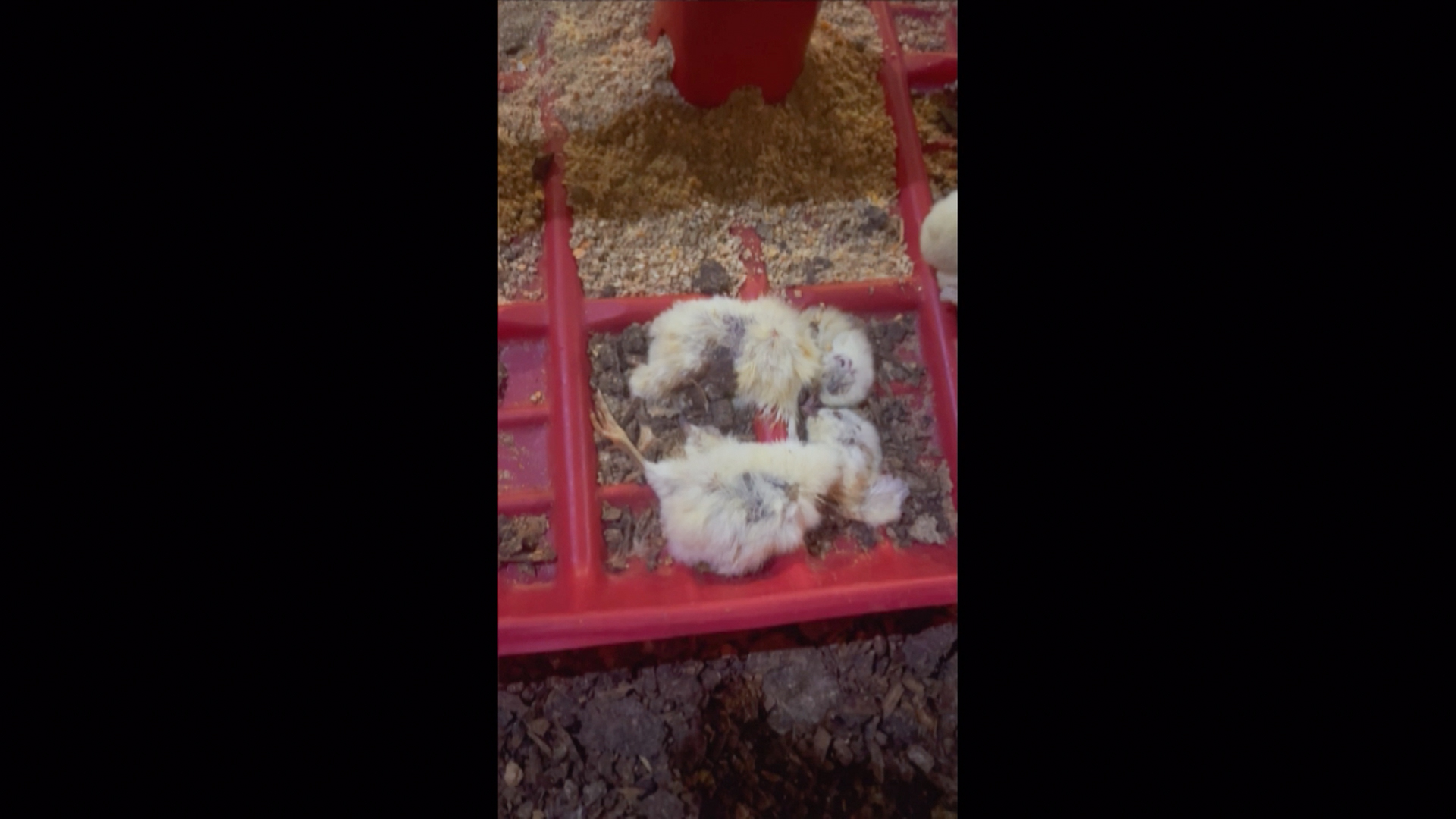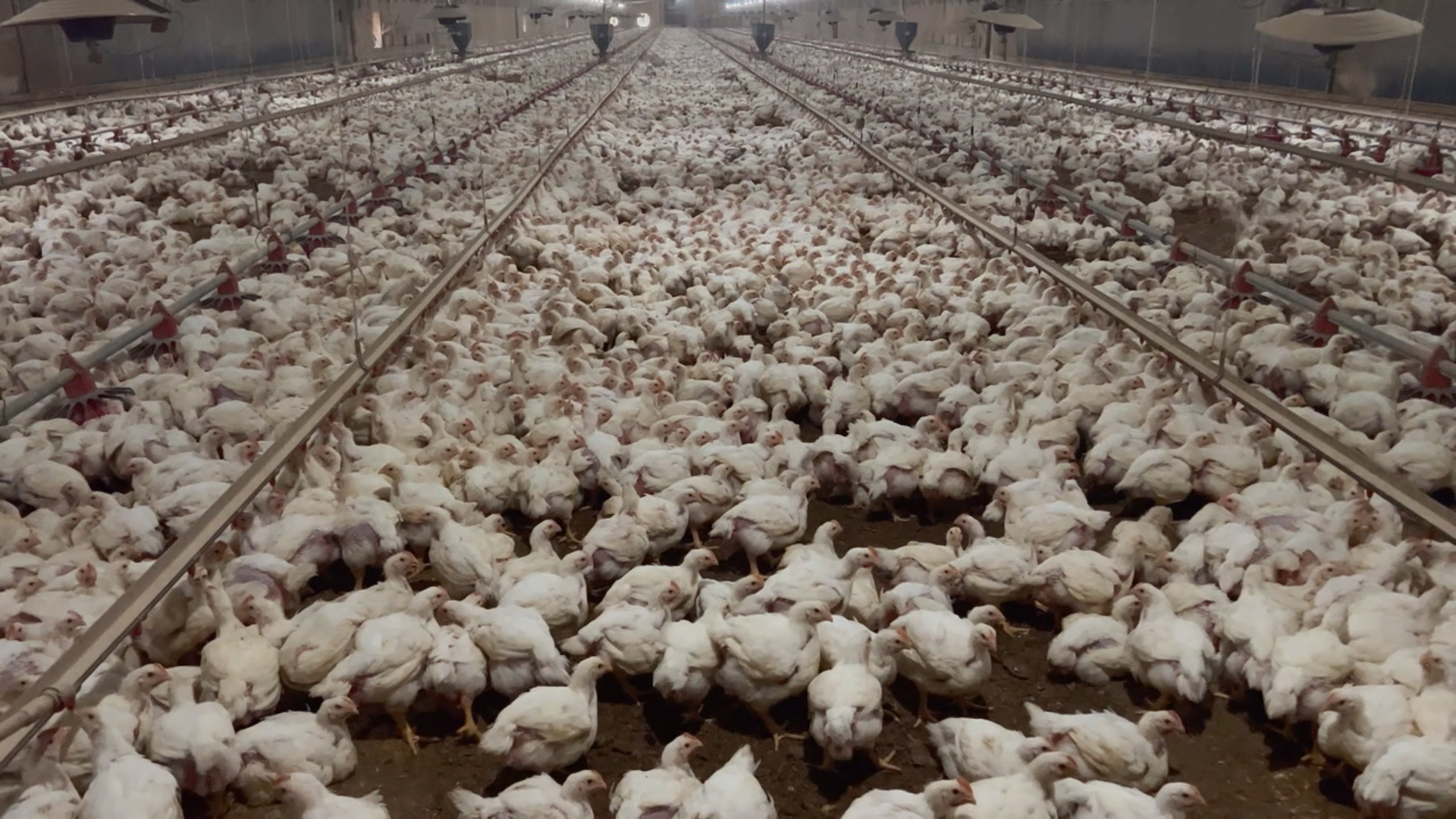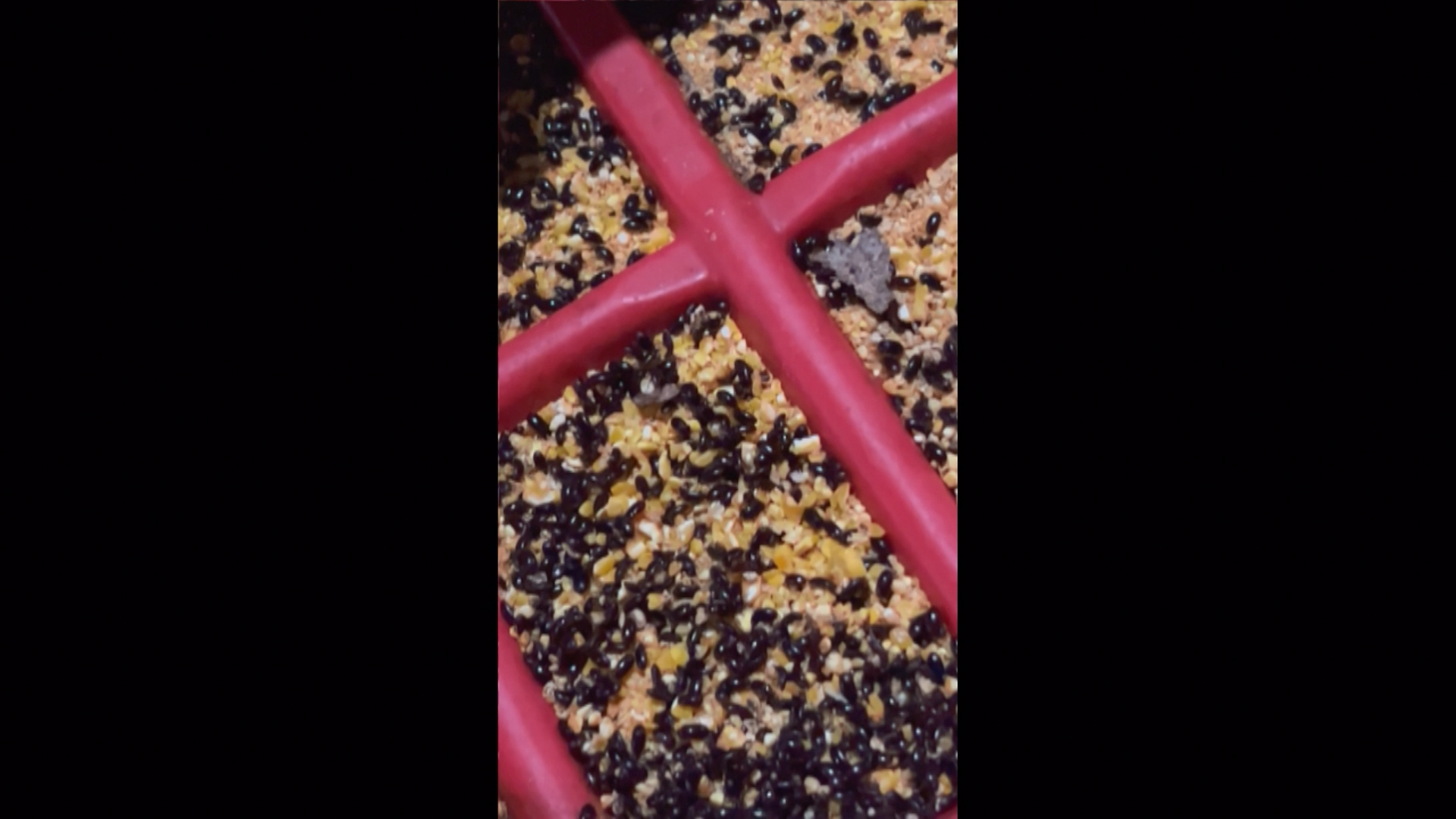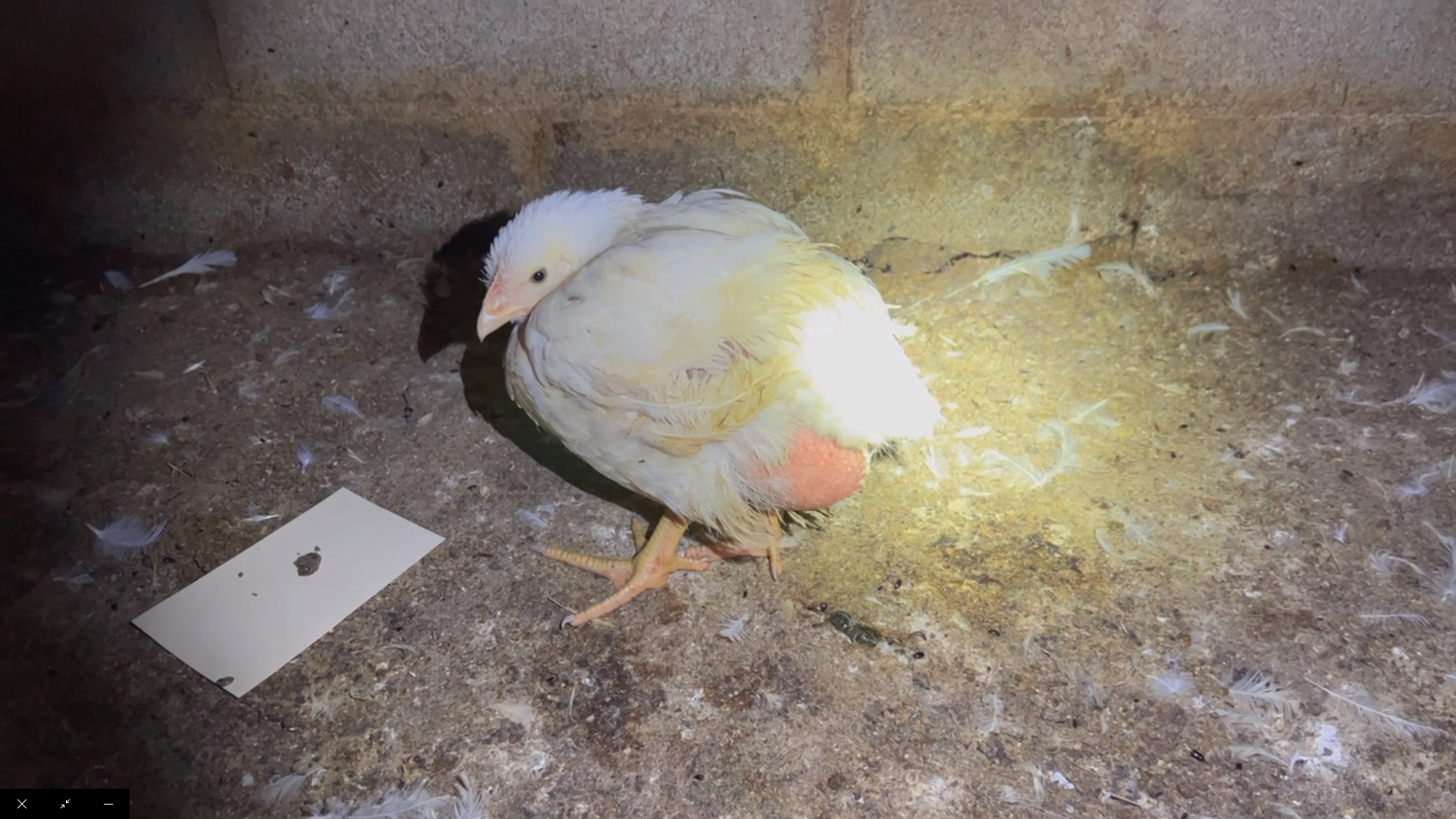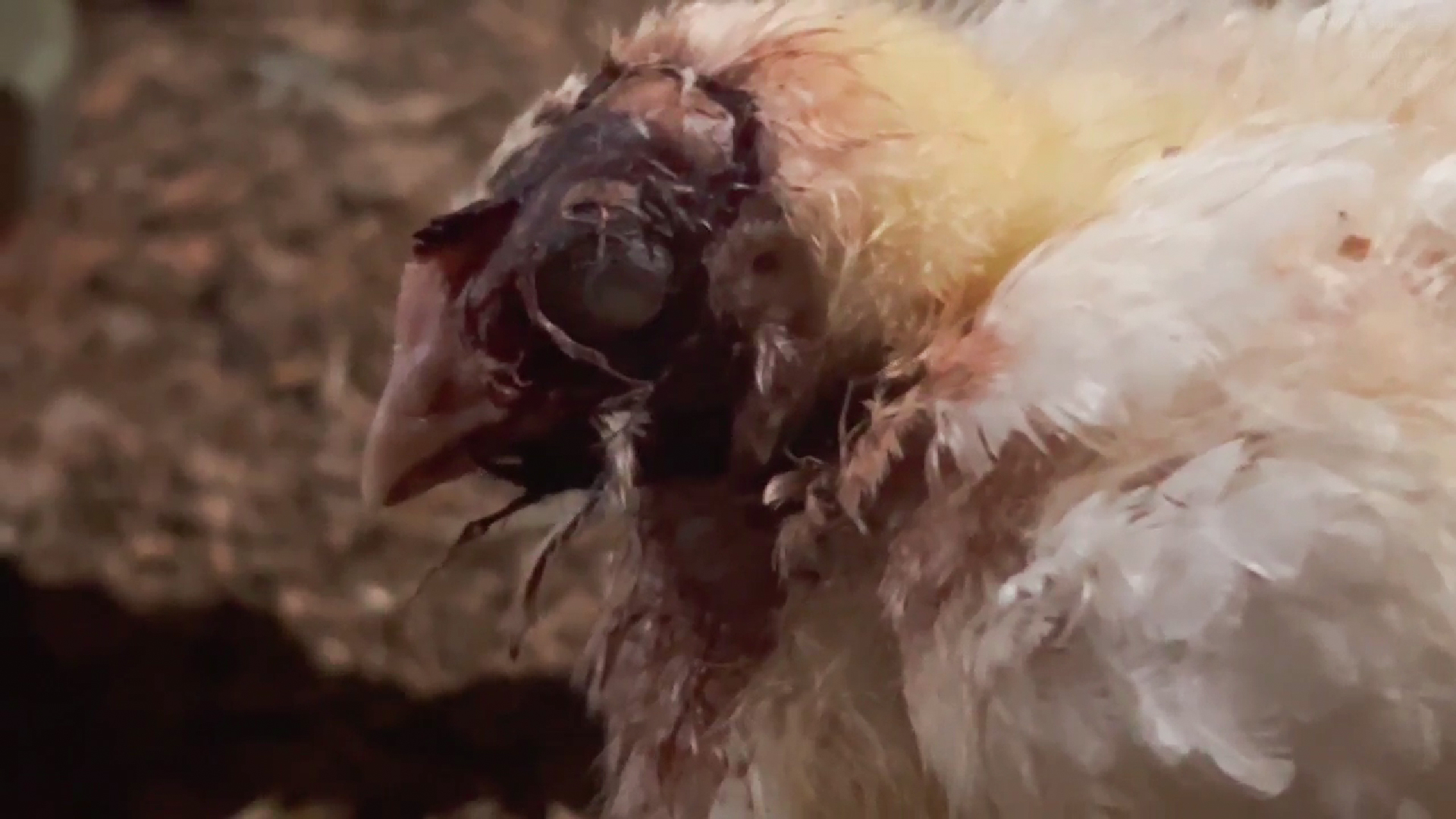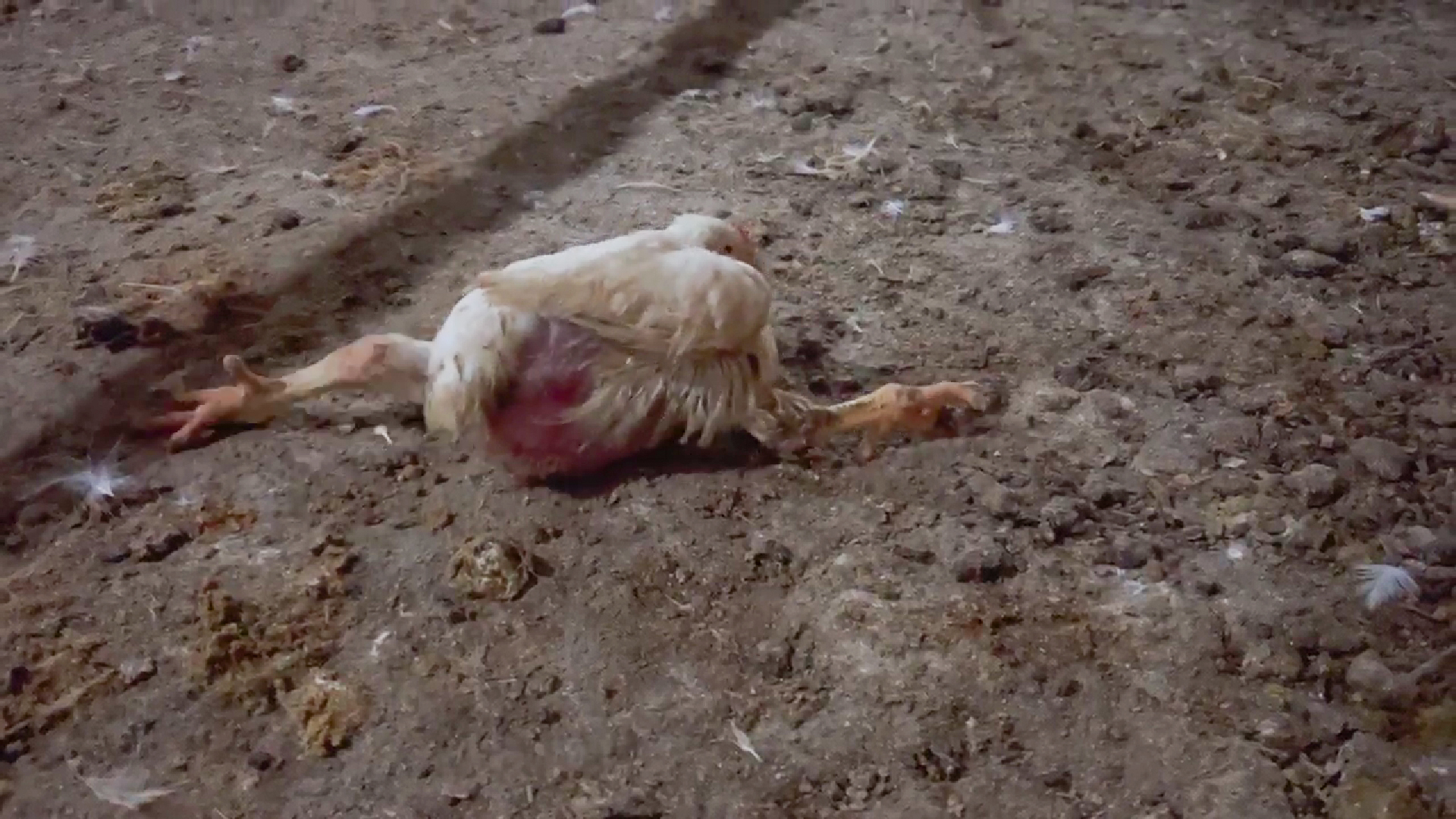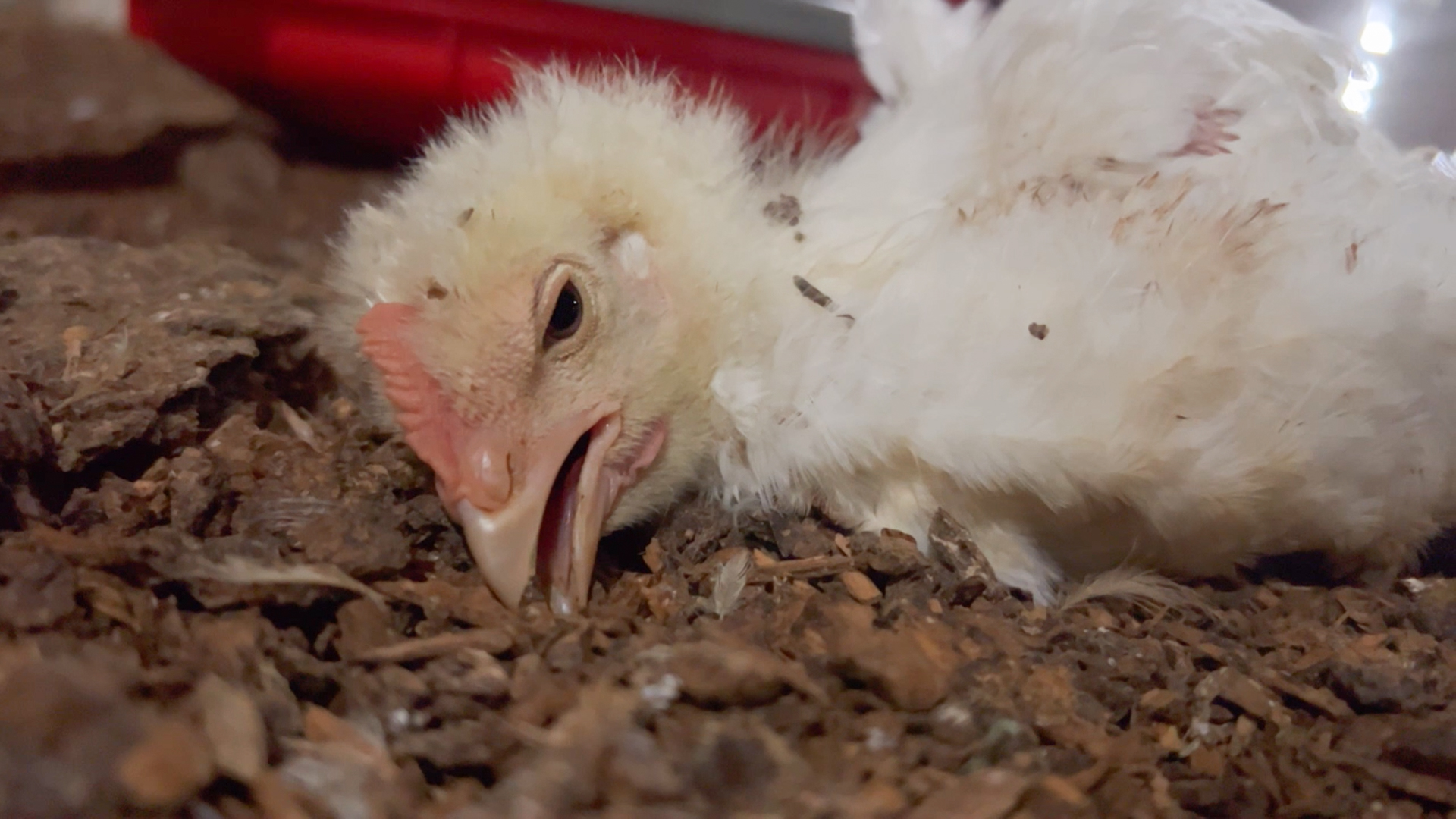November 2024 Update: On November 7, 2024, the owner of Jannat Farm pleaded guilty to has pleaded guilty to two counts of animal cruelty. This plea marks a significant development in the case, following a similar guilty plea from the farm’s manager in August, 2024. The farm owner’s guilty plea includes a 12-month suspended sentence on each count, along with a prohibition on working with animals for the duration of the sentence. Jannat Farm closed down after our investigation. However, if he resumes animal operations in the future, the facility will be subject to unannounced inspections for a one-year period, ensuring continued oversight. Animal Outlook advocated for a “guilty” plea over a “no contest” plea to ensure the owner accepted full legal responsibility for the mistreatment of animals on his property.
August 2023 Update: On August 1, 2023, eight animal cruelty charges were filed against the owner of Jannat Farm, and nine cruelty charges were filed against its manager, based on our undercover footage. Read the press release about the charges here.
Tyson’s “Broiler Technician Advisor,” whose position includes monitoring animal welfare, worked with Jannat Farm for seven years, and she knew of the poor conditions of the facility and the indifference of the facility manager. Tyson may be able to claim ignorance when a single worker rips off a chicken’s head. But when it knows about abysmal conditions and practices and allows animals to continue suffering, there is absolutely no question that the corporation is responsible. Here, Tyson knew–and it continued to deliver birds to Jannat Farm, year after year.
The conditions documented in the video above are the result of apathy at every level of responsibility. From the facility manager and the facility owner to Tyson itself–these people knew animals were suffering, and they just didn’t care. This investigation is a prime example of the reality of animal agriculture: cruelty is systemic.
Animal Outlook’s investigator documented:
Food and Water Deprivation:
- Many birds did not have access to water at the facility. Water lines were kept out of reach of many small birds. In one instance, the facility manager did not lower the lines at all in a section of the facility, so none of the birds in that section could access water. Footage shows multiple chicks jumping fruitlessly in attempts to access the water lines; other footage shows the investigator assisting small, weak or injured birds in reaching the water lines.
- Food ran out in the chicken houses multiple times. Once, because Tyson did not replenish feed, birds were without food for an estimated 52 hours.
Filthy, dangerous housing conditions:
- Bugs crawled through the chicken feed. The Tyson representative commented that the bugs would deprive the feed of nutrition and that the bugs would bite and hurt the birds.
- Footage shows rat corpses in the houses before the chicks were delivered, and the Tyson representative stated that there was fresh rat activity in all the houses.
- Dead chickens were left in and around feed trays. Many corpses were decayed when the investigator removed them.
- Water lines leaked, causing the ground to become muddy and damage the birds’ footpads. Footage shows wet, injured chickens shivering.
- In one chicken house, ammonia readings reached a toxic level on multiple days.
Violence Against Birds, Untreated Illness and Injuries
- When chickens were fully grown, “chicken catchers” came to round them up for Tyson. One catcher ripped off the head of a chicken.
- The manager killed birds in a method that plainly violates even industry-approved culling methods, holding them upright and tugging sharply down on their heads, up to eight times.
- Chicken catchers threw and kicked chickens, with one worker tossing a chicken, like a ball, to a second worker, who threw the chicken down into a crate.
- Numerous chickens with deformities, wounds, and illness were left to suffer. Some chicks and young chickens suffered from injuries that left them bloody and disfigured, and many were unable to walk or stand. Many had leg injuries from rapid growth due to genetic manipulation and the resulting inability to support their own body weight. Footage shows one chick, with an exposed skull and severely injured eye, still alive and standing.
Biosecurity Risks:
- The Tyson representative revealed that Tyson customarily does not implement biosecurity measures in the area where Jannat Farm is located. However, given the avian influenza outbreak, said the representative, Tyson would be requiring the facility to adhere to a biosecurity protocol–but Tyson did not enforce compliance with this protocol.
- Tyson recommended setting bleach trays at the entrance of the chicken houses, so that workers could clean their boots each time they entered a house. For two weeks after the flock was delivered, bleach trays were placed outside only two of the six houses. Even when trays were put out for all the six houses, neither the facility manager nor the other worker on the site used them.
Humane-Washing:
Tyson is the largest chicken company in the United States. The company markets itself as upholding a “moral and ethical obligation” of “proper animal handling” and claims that “[c]aring about animals is inherent to who [Tyson is] as a company.” It claims to have “zero tolerance for animal abuse.” It purports to have an Animal Welfare Advisory Panel and programs, including audits, to enforce its supposed commitment to the humane treatment of animals. Yet, as Animal Outlook’s investigation shows, Tyson sent chickens to Jannat Farm for years despite its knowledge of conditions and practices there. Moreover, this is not the first time a Tyson-contracted facility has been exposed for animal cruelty, including twice before by Animal Outlook, in 2016 and 2017. Other animal protection organizations have also conducted exposés of animal cruelty on Tyson-contracted facilities. In short, Animal Outlook’s investigation shows that it is, in fact, cruelty that is “inherent to who [Tyson is] as a company.”
Jannat Farm does not claim to be a free range facility. But those who work at and with the facility have an insider’s perspective on the industry, and some thoughts about free range facilities. In footage captured by the Animal Outlook investigator, the Tyson representative and the Jannat Farm manager speak frankly about–and mock–the very notion of raising chickens “free range.” Their commentary is revealing.
Manager: “I don’t see how they do the free range chickens outside.”
Tyson Rep: “Those birds don’t go outside. You know that.”
Manager: “You know how difficult it would be to put them all back in at nighttime?”
Tyson Rep: “They don’t all go out! Free range...look that up online. Free range, they only have to have access to the outside for like an hour a day or 30 minutes a day or something like that…”
Manager: “They make it like all of ‘em come out and enjoy the sun.” [Laughs]
Tyson Rep: “That is strictly for commercial purposes. They pick the prettiest birds and they toss ‘em out in the grass, and, most of the time, those birds are breeders, they’re not broiler birds. Because breeders are way prettier.” [Laughs]
Manager: “Got the nice little bell drinker hanging there and all that stuff.”
Tyson Rep: “Mhm. But breeders are way prettier than the broilers are so those are usually the ones they use for our commercials. Pullets, usually.”
All For Profit
All of this–the marketing, the lies, the suffering–is for profit. Tyson may claim to care about its birds, but our investigation–and repeated investigations before this one–show that nothing could be further from the truth. Indeed, it’s hard to see how a massive corporation whose business consists of raising and killing animals could say with a straight face that it “cares.” Time and again, when you put the industry claims against the industry reality, the truth is inescapable: cruelty is not the exception in animal agriculture, it is the rule.
Your support will help continue to expose the suffering animals experience in facilities like Jannat Farm. Please donate today to fuel undercover investigations like these.
You can also help the millions of animals who are used and exploited for food by removing them from your plate and encouraging others to do the same

